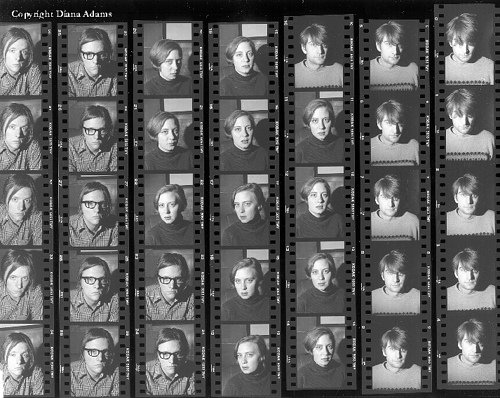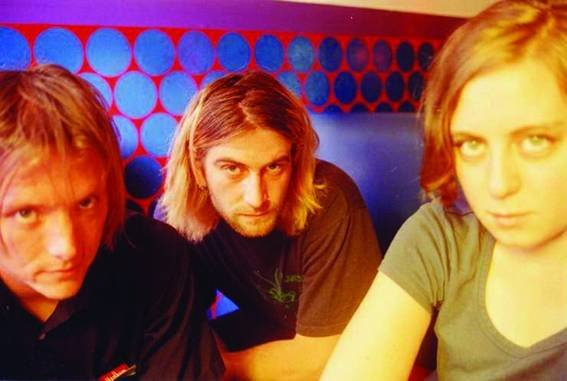Young fellows blessed with admirable cheekbones and teeth, it would be easy – if somewhat churlish – to write Childhood off as the latest, rather empty, indie hope.
That is, until debut album ‘Lacuna’ sinks in. Sure, it’s blessed with its fair share of indie disco stompers – the delirious delights of ‘Blue Velvet’, say, or the seductive sibilance of ‘Solemn Skies’ – but there’s something else going on here.
The production, courtesy of Dan Carey, truly takes ‘Lacuna’ into a different place entirely. It’s oddly psychedelic, but in a disconcerting, probing way, rather than the wishy-washy chorus pedal fare we’ve become accustomed to.
Independently released, the cult success of ‘Lacuna’ has taken Childhood out of their Lambeth base and forced them to address the globe. Clash gets on the blower to singer Ben Romans-Hopcraft for a catch up…
- - -
You’re a long way from home, is this the point where being a band starts to become a little more real?
Yeah, it’s cool. We’re still in the band that we were always in. But it’s great, it’s really exciting and everyday is cool.
It’s funny, because you drink in the same South London pub as the Clash team.
Oh yeah I heard that, it’s cool. Well we rehearse in Lambeth, but we’re kind of all from all over, really.
The band started when you were in Nottingham, but then you came back to South London. Is there something about South London that keeps you coming back? Do you just prefer it south of the river?
Yeah. I find it impossible to envisage my life not in South London. It’s one of those things that you put more emphasis on when you were growing up, representing the identity of it more, because you’re a bit more defensive of it. And also, it’s one of those places in London, like East is full of people that have moved there, whereas South, if you’re brought up around there, most people stay around there. There’s also a bit of a feeling of familiarity.
If we can talk about your debut album 'Lacuna', is that material that you had in place before you went into the studio? Or was the studio the point where the album came together?
It was a mixture. We had a lot of songs ready, all the songs pretty much, and it was just finishing them off. There were some songs we just recorded live and the production was within the playing, so we didn’t have to do much. There were other songs where we’d be playing an idea in the studio and (producer) Dan Carey just record it instantly, and then that would be the song. He’s pretty hands-on when he thought that he could add something and he really inspired us to just not really give a shit, which is quite a cool thing to feel when you’re in the studio. It frees you up a bit more, so that was great.
The songwriting is one thing , but what puts it above a standard indie debut is all these weird little elements that you can’t quite place.
My main memory of the studio is our drummer hitting champagne bottles with sticks. There was a lot of that, it was great! It was really percussive and he’s got a real knowledge of percussion sounds and how effective they can be.
Is that something as a band pay a lot of attention to anyway, do you look at the rhythm section and think, 'this is how we’re going to get people to dance at a show?'
It’s weird because we were more focused on melodies, initially, but then I think the studio process has made us more conscious of texture. More conscious of the heights you can achieve, the way you can transform something with the addition or lack of texture. He definitely inspired us to think about that a lot more. I think we’re thinking about that as a main focus for our next record.
Can you see yourself working with Dan on the second album?
I can’t really see myself working with anyone else. I’m always up for listening to ideas but he’s so versatile and such a mate it seems like a winner, constantly. I feel confident with him.
Do you feel like you have come away from the studio as a better band?
Oh totally.
Obviously you’ve learnt your trade, so what’s it like to be able to get to this stage and play festivals?
It’s great. It’s just one of those things when you realise what you’re doing once you’ve done it and you’re home again. You’re like: ‘what I did last week was awesome!’ and at the time you’re kind of just getting on with it. But I think that’s the way we deal with most things because if we actually start thinking of the significance of the stuff we do, then we get intimidated. So keep it simple.
When you go to other countries you might play for people who haven’t heard Childhood before. Is it refreshing to go to places that are unaware of what’s going on?
I love it. It’s like a challenge. There’s nothing better than when you feel like you’ve played to an audience that didn’t know you before, and by the end of the gig you’ve kind of turned them. You can kind of tell when that happens. I think that’s probably one of the most reward things about being in a band really, it’s like a real shared thing that music is designed for. It’s great, I love that.
There are all these weird sounds on the record, so are you tempted to re-create that live? Or do you think Childhood (live) and Childhood (in the studio) are different?
Well we do actually want to achieve some of the personality of the production live, definitely. We make efforts to do it, but we don’t try and copy the songs. The live shows we re-interpret them, keeping the energy of the live performance. But we have made efforts, and we’re still working on that now, how to incorporate a lot of the character that is recorded. It’s a struggle but it’s definitely worth working on.
Is writing something you find time for on the tour bus?
Yeah I try and do stuff on the tour bus... just because it’s so boring. All we have is Indiana Jones on DVD so I’m trying ways of entertaining myself. I just take my keyboard with me and try make something up.
You mentioned that you have already started thinking about your second album, how far down the line are you planning that?
Well we’ve started writing it already. We’re sort of in the middle of discussing what route we could go down. Everyone’s contributing in their own way and then we’re going to bring everything together. When we’ve finished these dates we’ve got a couple of weeks off, so we’re gonna use that time wisely and work out a direction that we feel we think about music now. We constantly want to evolve, I don’t think we’re ever going to stick and do the same thing. The whole point was to always evolve the sound. That’s what we’re trying to do, I don’t know if we’ll actually pull it off, (laughs) but that’s the intention.
From Childhood to adolescence.
Exactly! There you go. Everyone can guess what our second album is gonna be called. (laughs)
- - -
Childhood have confirmed the following shows:
October
3 Sheffield Leadmill
4 Manchester Deaf Institute
7 Southampton Joiners
8 Brighton Audio
9 Birmingham Hare & Hounds
10 Norwich Sound & Vision
13* Lincoln Engine Shed
14* Westcliff-on-Sea Southends Cliffs Pavilion
15* Bexhill-on-Sea De La Warr Pavilion
17* Wolverhampton Civic Hall
18* Cardiff University Great Hall
20* Bournemouth O2 Academy
21* Cambridge Corn Exchange
23* London Brixton Academy
24* Bath Pavillion
25* Manchester O2 Apollo
27* Glasgow O2 Apollo
28* Newcastle O2 Academy
29* Leeds O2 Academy
* w/ Johnny Marr
Buy Clash Magazine
Get Clash on your mobile, for free: iPhone / Android






























































